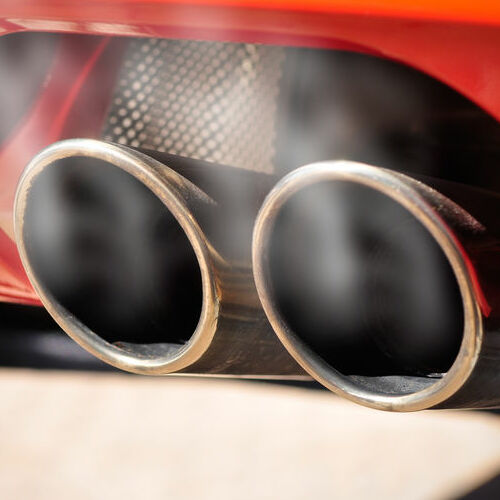
for Audi, BMW, Land Rover, Jaguar, Mercedes,
Mini, Porsche & Volkswagen Repair

for Audi, BMW, Land Rover, Jaguar, Mercedes,
Mini, Porsche & Volkswagen Repair

Car enthusiasts agree that the pivotal reason why a dual exhaust system is used is to remove the leftover air out of the cylinders faster. This makes the next exchange start more quickly. Essentially, the dual exhaust helps speeds up the process of removing used air from the engine, and this makes the exchange of air faster. The more air is removed, the more is brought in, creating more horsepower. In some cases, adding a dual exhaust will not make a significant difference. For instance, if a person has a non-turbocharged four-cylinder adding a dual exhaust will not be momentous. On the other hand, if a person has a turbocharged four-cylinder, having a dual exhaust is a plus because of the large amount of air and fuel that is forced into the engine.
The car exhaust provides many different faculties for your vehicle. The following list describes some of these capabilities.
This is a tricky question. Updating the exhaust does not exactly increase horsepower. Why? This is because engines are only designed to reach a certain maximum level of power. Updates can assist with achieving the optimum horsepower of the engine. Car-makers have to contend with other factors, such as cost and the sound of the exhaust, which means that the muffler may not be fully optimized. When an engine is allowed to cycle through fuel and air with maximum efficiency, the total horsepower of the engine can be revealed.
It all boils down to the combustion engine. Cars move because air and fuel burn in the combustion chamber. The toxic gases that are produced are harmful to the driver and passengers. The exhaust system circulates the air through the engine and then facilitates the used up air and fuel out of the vehicle. The exhaust system is the respiratory system, or lungs, of the car. If the car one is driving has a faulty exhaust system, the milage can be greatly depleted.
It is true that if your exhaust pipe has a hole or a leak, your engine performance will be affected. For those driving older vehicles, the problem may not be immediately evident because older cars tend to be slightly noisier and less efficient. If the exhaust has a hole in it, the system will be rendered less efficient and more vulnerable. One of the tell-tale signs of an exhaust pipe hole is extremely loud noises. Backfiring is possible, too. In scenarios like these, the air mixes with the fuel and creates back pressure, which causes backfiring. When an exhaust system is compromised, it will reduce the performance of the engine and also limit the fuel economy. A diagnostic test reveals many underlying problems with a vehicle. One of the problems that may need to be addressed is the exhaust and emissions.
The main components of car exhaust include nitrogen, oxygen, water, carbon dioxide, carbon monoxide, nitrogen oxides, and more. Car exhaust fumes are composed of hundreds of differently structured hydrocarbons that burn in a multitude of ways and rates. This means that car exhaust contains hydrocarbons that were partly burned, some that simply reacted, and some that reacted with nitrogen. While oxygen, nitrogen, and water do not have adverse effects on the environment and personal health, the soot, benzene, hydrocarbons, sulfur dioxide, nitrogen oxides, and carbon monoxide each contain some measure of toxicity.
It is safe to say that driving a car without an exhaust system is very bad. Because exhaust systems are beneath the car, the exhaust can experience rapid corrosion from salt and road grime if left unmonitored. As previously stated, exhausts are the primary channel of funneling air and fuel to and from the engine. When this important function is compromised, a reduced fuel economy, higher emissions develop. If the exhaust is not treated when problems start to occur, the fumes leaking from a cracked exhaust pipe will damage the surrounding components. One of the most critical consequences of a broken exhaust system is noxious fumes entering the cabin.
Vehicles are a major contributor to air pollution. In fact, when cars burn gasoline, they emit pollutants. Even the process of pumping gasoline into a fuel tank creates an opportunity for gasoline fumes to escape into the air. One of the things that drivers should be aware of is any coolant leaks occurring in the engine of their vehicle Manifold gaskets should be inspected if the smell of strong exhaust gases is emitted from the engine.

Driving a car that has an expanded and heightened exhaust system can be a thrill for the senses. Thankfully, there are a number of different brands that are available for consumers who would like to upgrade their exhaust system. Based upon reviews, the Gibson exhaust system, the Skunk2 Megapower exhaust system, and the JBA performance exhaust system have all received accolades. With a fair amount of research and the right mechanic, upgrading the exhaust system of a car has never been easier.